How I experimented with games to change the world
Why It Matters
For decades, gamification has been used to influence us and modify our health habits. Now, changemakers are testing the concept with social change, with the idea that games could open new possibilities for mobilizing citizens and organizations and breaking the cynicism toward the future.
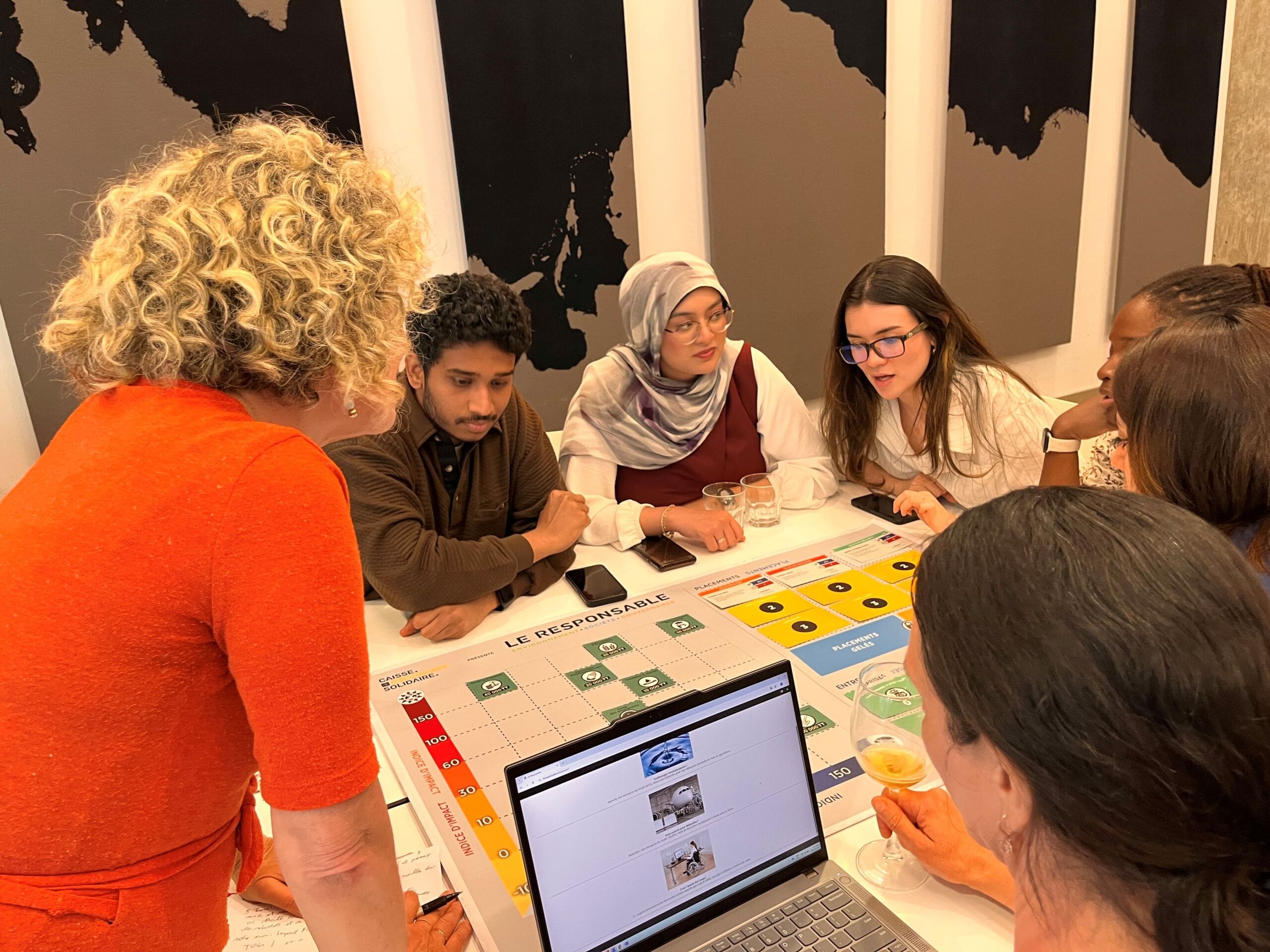
Can playing a game be a tool for social change?
I decided to find out and attended two nights of group play around the idea of using games to help demonstrate possibilities of positive change in societal impact. I also interviewed the creator and two players of a DEI card game.
For my first gaming night, I role-played an asset manager for clients looking for impact and returns.
The first game
The game “Le Responsable” was created as an initiation into responsible investing.
Christophe Billebaud created it ten years ago to spice up the Caisse d’Économie Solidaire Desjardins general assembly.
The financial institution was seeking a fun and simple way to introduce its members to the possibility of aligning their investments with their values.
“It made for a very lively general assembly,” said Billebaud.
A game runs for three hours and is structured into five rounds.
The night I was there, I pretended to be a responsible asset manager.
The moderator presented various investment opportunities, including green fossil fuels, technology investments, workers’ funds, and some direct investments in social enterprises.
Each round began with the political and economic news of the world, to add some context for our choices.
The challenges were numerous. Each team had to agree on an investment strategy, which was difficult because we all have various visions of responsible investment. There were some heated discussions at every table.
Then, we must stick to what we’ve decided, resist proposals too good to be true, and never lose sight of the two-fold objectives: do well and do good. As the game progressed, we realized the consequences of the imbalance on our score. Going too strong on impact prevented us from accumulating enough points for returns, and vice versa.
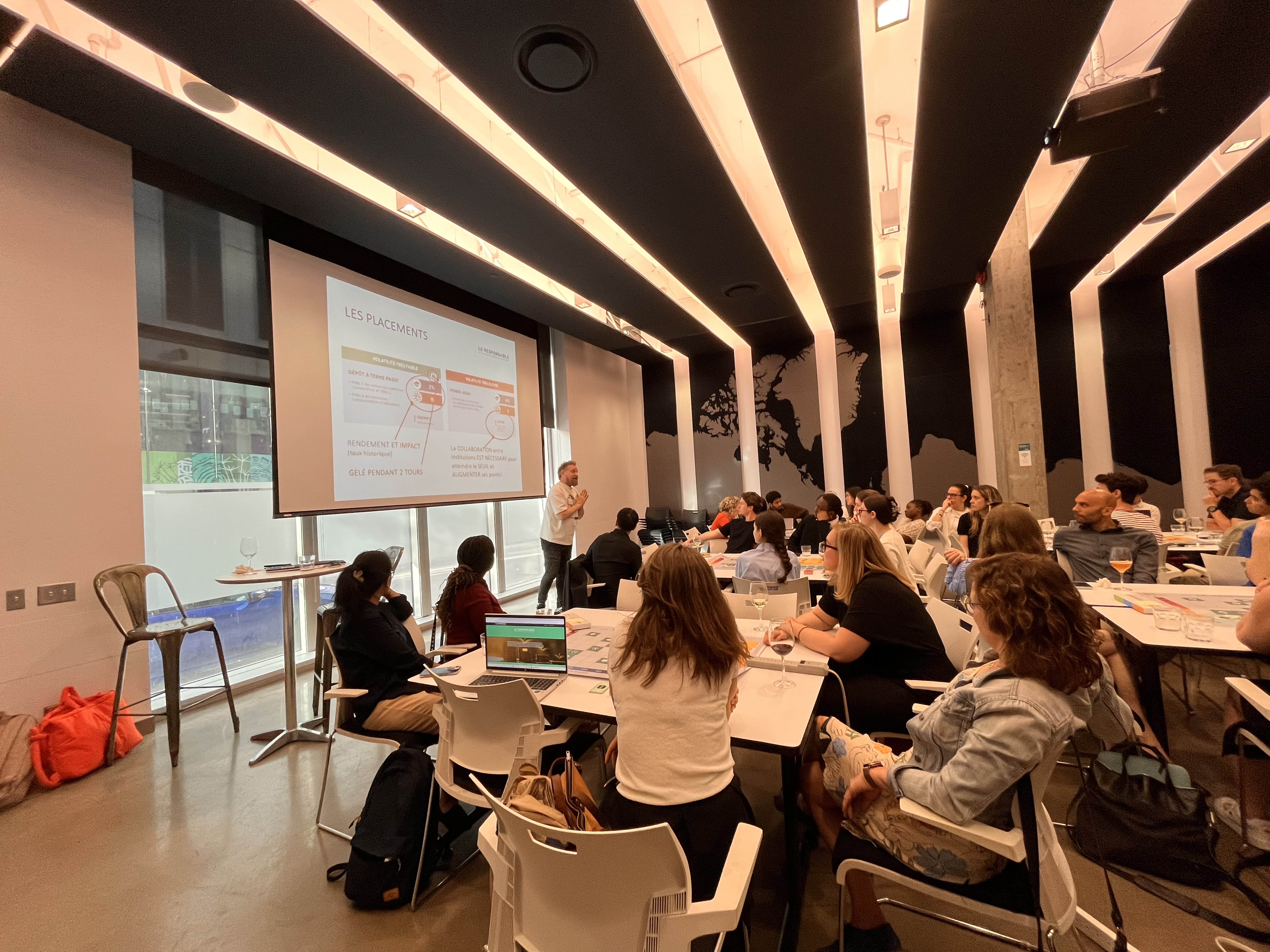
Serious games aim to educate players. More than 3,000 people have played “Le Responsable” over the last 10 years; a few finance professionals, but most of the players have been students and average citizens.
“We aim for the players to turn to their financial advisor or banker and ask about their responsible investment offer. This should force the finance sector to step up its game,” said Billebaud.
The role of emotions in social change
The efficiency of games lies partly in information, partly in emotion.
During the game, we encountered the “Pouceville incident,” which was quite an experience! The whole room went wild over this investment in an agricultural non-profit. We all opened our wallets in the blink of an eye!
Then, in the following round, it was swept away by governance issues.
“Everyone gets excited about Pouceville’s virtuous mission, ignoring the fine print about the high level of risk of this investment, ” said Billebaud.
Another trap was an investment in a technology company promising giga-energy savings thanks to AI.
“We propose it at the end when players are rich. They get ambitious, targeting big investments with big promises, seduced by the hype and the buzz,” says Billebaud.
A few investment thresholds required pooling teams’ money, so then we needed to engage with other teams to score.
“The fact that it was all a game made us more open to dialogue and less judgmental. We were all won over by the room’s energy, ” said Marie-Hélène Lafond, responsible for dialogue at workers’ fund Fondaction.
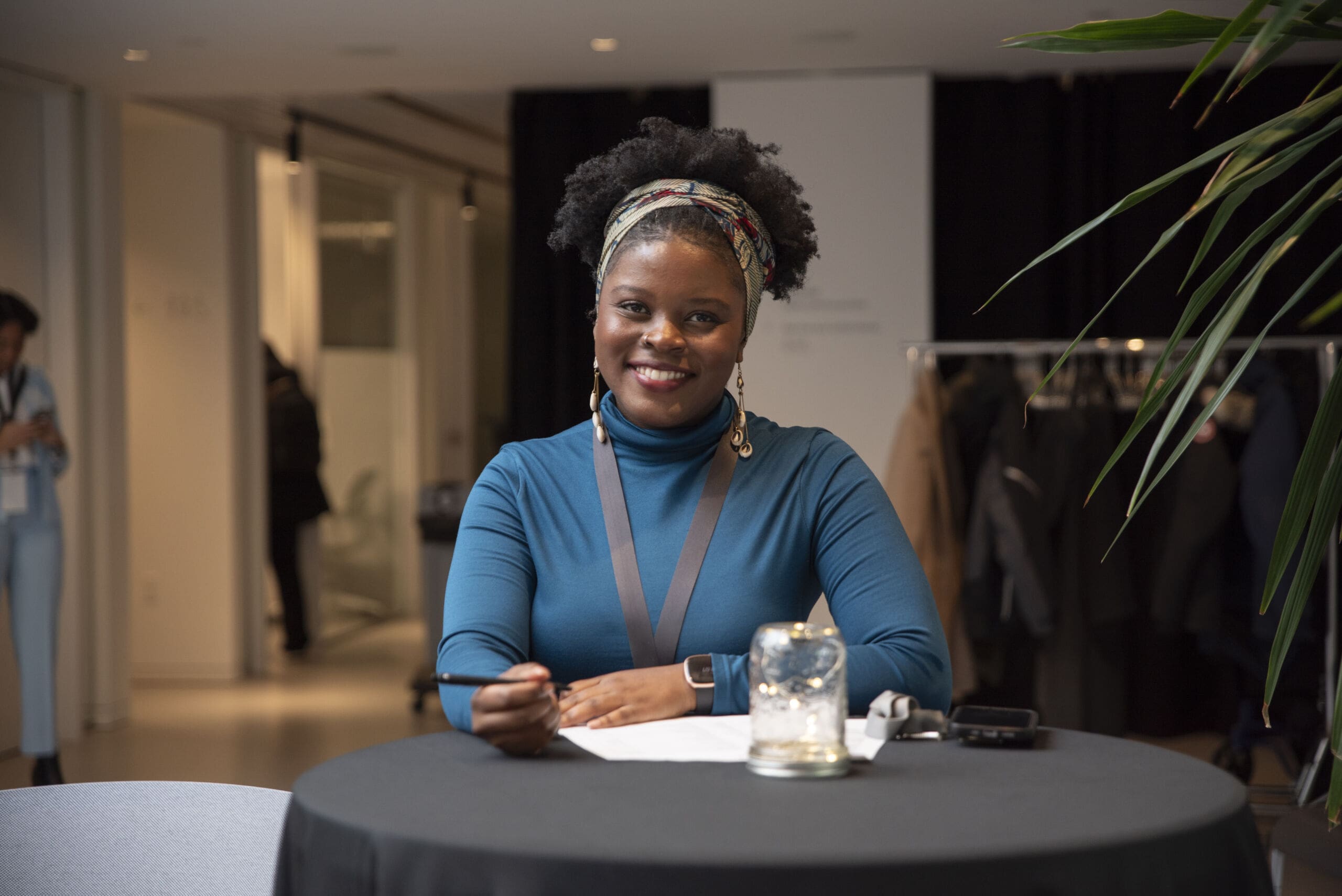
Still, some investments sparked difficult discussions, like a mining proposition.
“My origins are Congolese; I am rather cynical about ethical mining,” said Ananda Mbumba, advisor at Le Fonds Afro-Entrepreneur, investing and lending money to entrepreneurs from the Black communities.
“In the first rounds, I pushed my team to concentrate on impact. When the mining proposition came up, the discussion was heated. In the end, we invested. As an asset manager, our responsibility was to cater to diverse investors,” said Mbumba.
“The game reflects the complexity of responsible investing,” said Billebaud. “Excluding particular sectors or divesting are not the only strategies toward a more sustainable economy.”
“My education on responsible investment is only starting; my vision evolves,” said Mbumba. “At first, I advocated for exclusion. Now, I consider environmentalists not the only climate changemakers; shareholders can be activists too.”
The second game
The second game I played was part of a thematic soirée on socio-ecological transition and climate action. I had eight game options to choose from.
I picked Défi 2tonnes (Challenge 2tons), which required me to calculate my annual carbon footprint and send it to the organizers a few days before the event.
It was pretty different from pretending to be a responsible investor; it was a personal journey.
According to the calculations, my lifestyle produces 9.72 tonnes of CO2 every year. The average American produces 17 tonnes, and the Canadian 14 tonnes.
After eight rounds and many complex lifestyle configurations, I (hypothetically) cut my carbon footprint to 4.12 tonnes.
I left the venue with mixed feelings of empowerment and despair.
The game showed that climate action does not need to be an all-or-nothing move. Eating meat four times a week instead of seven makes a difference, just as switching your car for public transport once a week does.
Each round focused on a theme: food, transport, circular economy, or energy. Over two stages, we chose individual actions to reduce our footprint from various options. Then, by consensus, we chose collective actions impacting the country’s footprint.
Halfway through, our team realized some choices were out of reach without making specific decisions in previous rounds.
For example, a government that does not invest in education and awareness-raising upstream cannot pass more restrictive laws.
A real-life, recent example of this is the fate of Canada’s individual carbon pricing. “Carbon pricing was poorly understood and poorly communicated. Although most of the revenue was returned to households—through rebates or tax cuts in places like B.C.—many people only noticed higher fuel prices and ignored the money coming back. The policy felt like a tax, and that made it unpopular. Ironically, now that it’s gone, many lower-income households will be worse off,” said economist Werner Antweiler, from UBC Sauder School of Business.
A recent global study on what drives support for or opposition to important climate policies showed that “at least three-quarters of respondents in each country agree that ‘climate change is an important problem’ and that their country ‘should take measures to fight’ it but this often does not translate into an agreement on which climate policies to support.”
The survey of 40,000 respondents concluded that “information is the most important factor in shifting views on climate policies.”
However, not any kind of information will do. “Information on the dangers of climate change alone, without a corresponding explanation of policies’ effectiveness and implications, has limited impacts on policy support.”
Feelings of empowerment and anxiety
Playing Défi 2tonnes actually helped refocus my work as a solutions journalist. If the primary motivation for supporting a policy is the belief that it will reduce GHG emissions and air pollution, then clear information on climate policy impact is part of the media’s responsibility. Solutions journalism is, at its core, about “news we can use.”
As a citizen, Défi 2tonnes reconnected me with my fellow humans. Sharing our feelings regarding lifestyle changes and making tough decisions together for the common good validated and eased some of my anxiety about climate action.
Hino Guesdon, a business school student and the youngest member of our team, summed up my three takeaways.
“Some actions have more impact than others and are not always the ones you think. The transition is as much individual as it is collective. We often underestimate our power of influence, beyond our carbon footprint,” he said.
Still, I cannot help thinking that my final score, 4,12 tons, is far from the two-ton goal.
“So far, the best scores don’t go under three tons,” said Melody Laye, one of the two moderators.
“The game was created in Europe. You played the first iteration of the Quebec version. The next versions will offer more possibilities to reduce the players’ carbon footprint.”
Défi 2tonnes has four goals, said Laye.
First, to get people moving. “It’s a proactive, optimistic approach, even if it does show that we need to act quickly, far removed from the guilt-inducing rhetoric that doesn’t work,” she said.
It also gave orders of magnitude. Some actions, say, on food have more weight than others. In this way, the game adds evidence and data to back it up and guides individuals sometimes overwhelmed by information.
It highlighted the notion of influence: “Because it’s by raising awareness and getting involved that you’ll get the collective ‘on board,” said Laye.
Finally, it invited the players to consider the social challenges linked to climate action. As a team, we discussed the co-benefits and the tensions connected with various actions.
The third game
The paths to social change evolve as we better understand the drivers of behavioural change.
Chloé Freslon has been giving DEI sessions to businesses for a few years.
“I couldn’t reach certain people. They felt attacked, ashamed or angry. Neuroscience shows that negative emotions prevent us from learning new information,” she said.
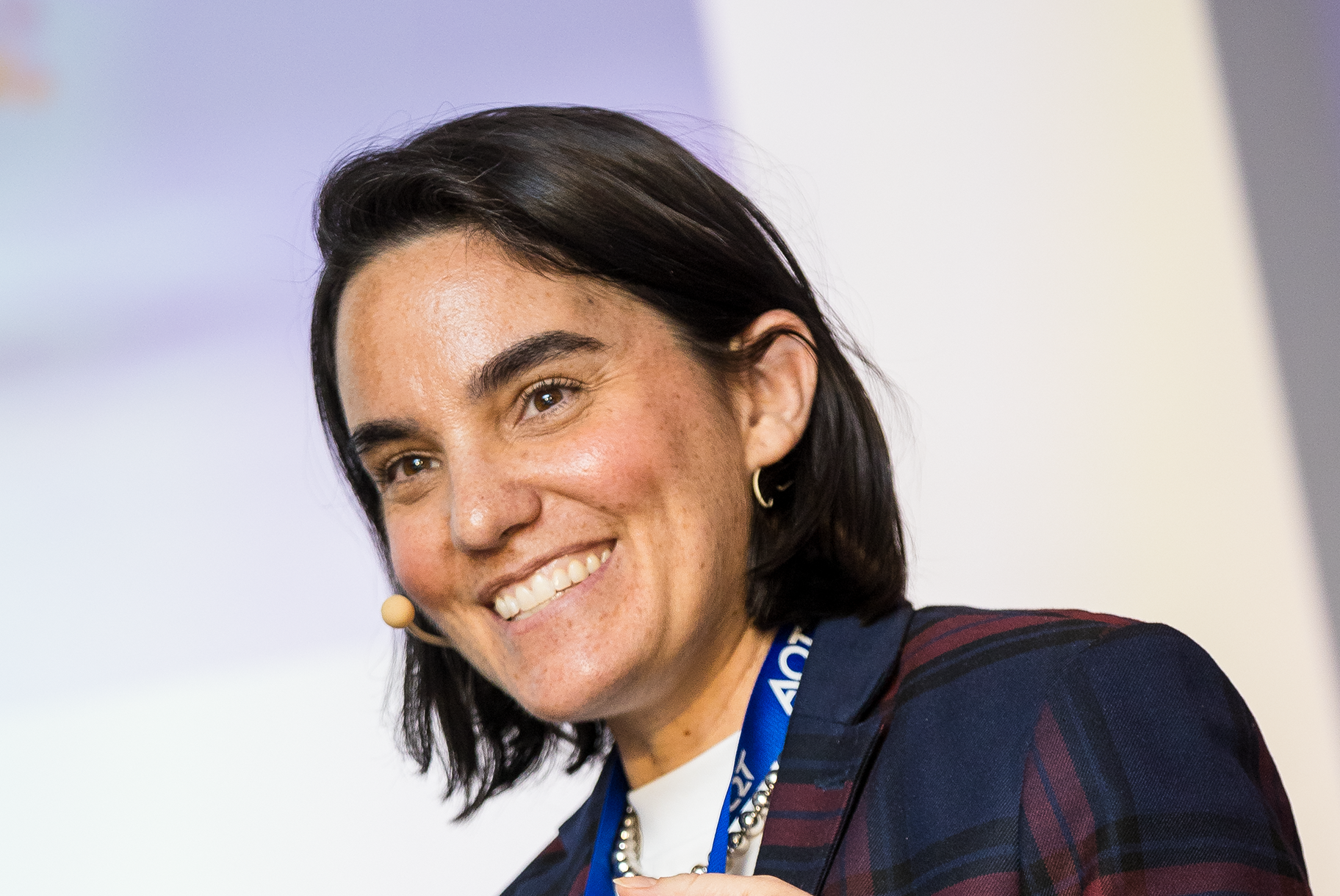
She imagined placing a deck of cards as an intermediary between the participants and the training. Suddenly, she was getting through.
“Participants don’t talk about their feelings; they talk about the feelings of the character on the card,” she said.
The game “Mettons que…” (Let’s suppose that…) relies on three types of cards: character, situation, and an inclusion question.
For example, Sabrina is a cisgender Vietnamese woman who speaks little English. What will her first day at her new job be like?
Participants share their views.
Then comes the inclusion discussion: what can/should the organization do to ease Sabrina’s arrival?
The moderator can add a special card. One of the participants could play Sabrina and answer the team’s questions, play Sabrina’s ally on her first day, or play a skeptical employee questioning hiring an employee not fluent in English.
Then, there is a low-budget/no-budget card. “Participants imagine ambitious programs; in real life, organizations have limited money, and managers have limited time. DEI does not rely on a single type of intervention; many possibilities exist,” said Freslon.
Gaming can help participants adapt to the present, but it could also prepare them for the future.
Caroline Boyce is an HR consultant, and Marika Znack-Jalbert is a DEI advisor for a Quebec parapublic organization. They see a game like “Mettons que…” as helpful in designing future HR policies.
“The game could cover situations from the cycle of the employee experience: posting a position, job interview, reception, performance management (give questions in advance for a neurotypical employee so that they can prepare, meet in person or on zoom), salaries, social benefits, (menstrual products provided, leave for painful periods) departure party,” says Boyce.
After-play: the challenge of keeping the flame burning
Social change is a group sport. The night I played Défi 2tonnes, I brought my friend Karoline, an anthropologist. She tried a different game called “La fresque des nouveaux récits», where they created narratives for a desirable future, considering planetary limits.
“The group gave me strength and impulse,” said Karoline.
“What comes after? The game should include follow-up meetings to go beyond a pleasant one-evening experience. In further meet-ups, we would share the changes we accomplished, the ones we did not, and why. Then we would find together how to do things differently and set personal objectives for the next meeting,” Karoline added.
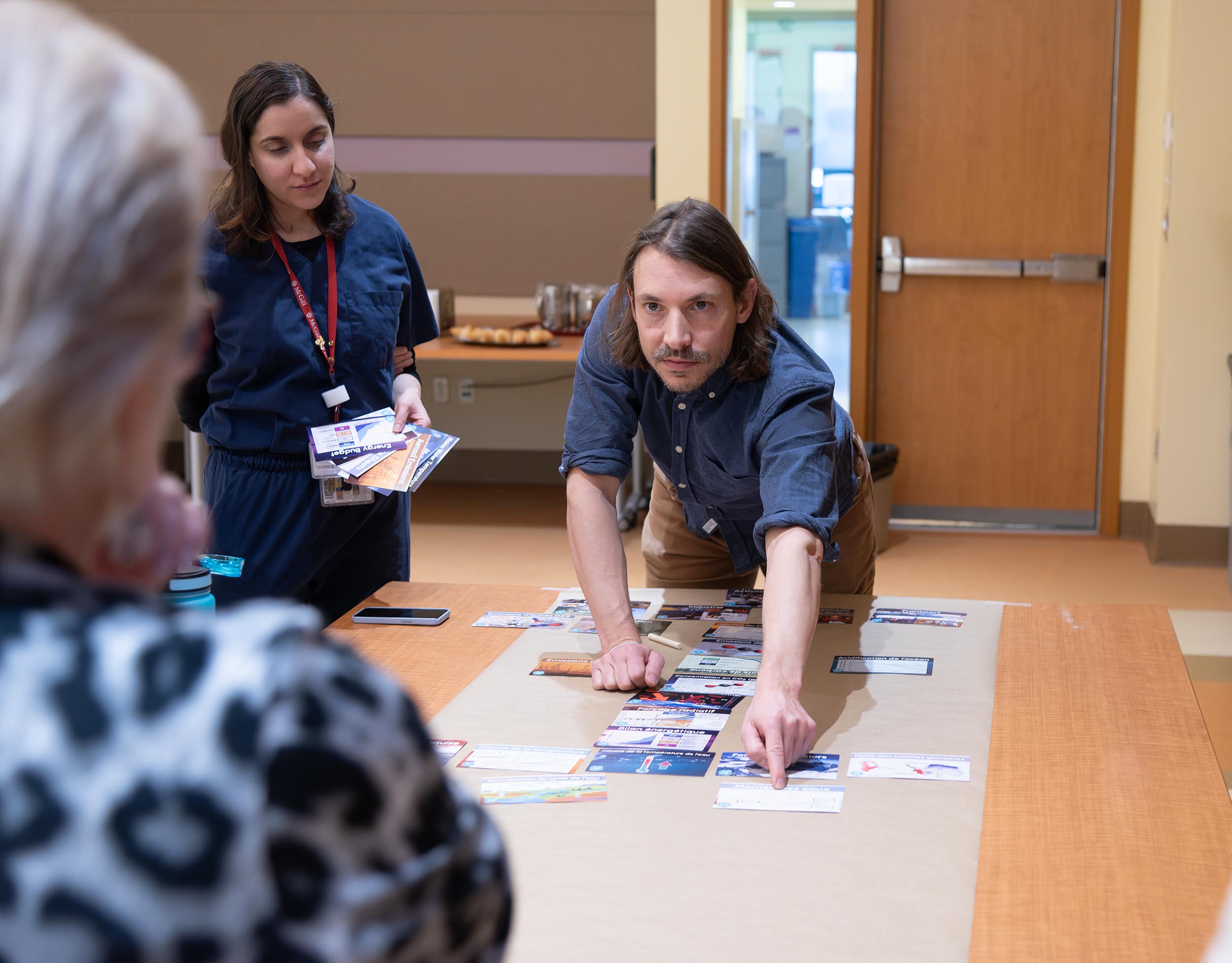
Some organizations have held game nights as prospective exercises to plan their next 10 or 20 years, said Michael Brard, moderator for La Fresque du climat, which was created in 2015.
La Fresque has inspired various games related to the socio-ecological transition, like “La Fresque des nouveaux récits,” which my friend Karoline played.
“Whether the players are a group of total strangers or employees of the same company, the goals are the same: understand a social challenge with facts, embrace the complexity and our inconsistencies, stop blaming the neighbour, and search for or experiment with solutions collectively,” said Brard.
